I am trying to present the user with a file open dialog for files that fit a specific pattern. They are of the form prefix_*.suffix, where the asterisk represents a wildcard.
Here is a minimal example of how I assume this should be accomplished with TkInter:
from tkinter.filedialog import askopenfilename
my_dir = 'C:\\path\\to\\some\\directory'
pattern = (('File type', 'prefix_*.suffix'),)
title = 'Title'
my_file = askopenfilename(initialdir=my_dir, filetypes=pattern, title=title)
However, the resulting dialog box prepends a spurious wildcard to the front of my pattern, so that it now looks like *prefix_*.suffix. This is not what I expected.
Am I doing something wrong? I can't find any decent documentation on how this interface in TkInter is supposed to work, so maybe it is more limited than I expected. If so, is there a builtin Python library that would support this specific use case?
In case if it is relevant to the question, I am on Windows 10 with a 32-bit install of Python.
